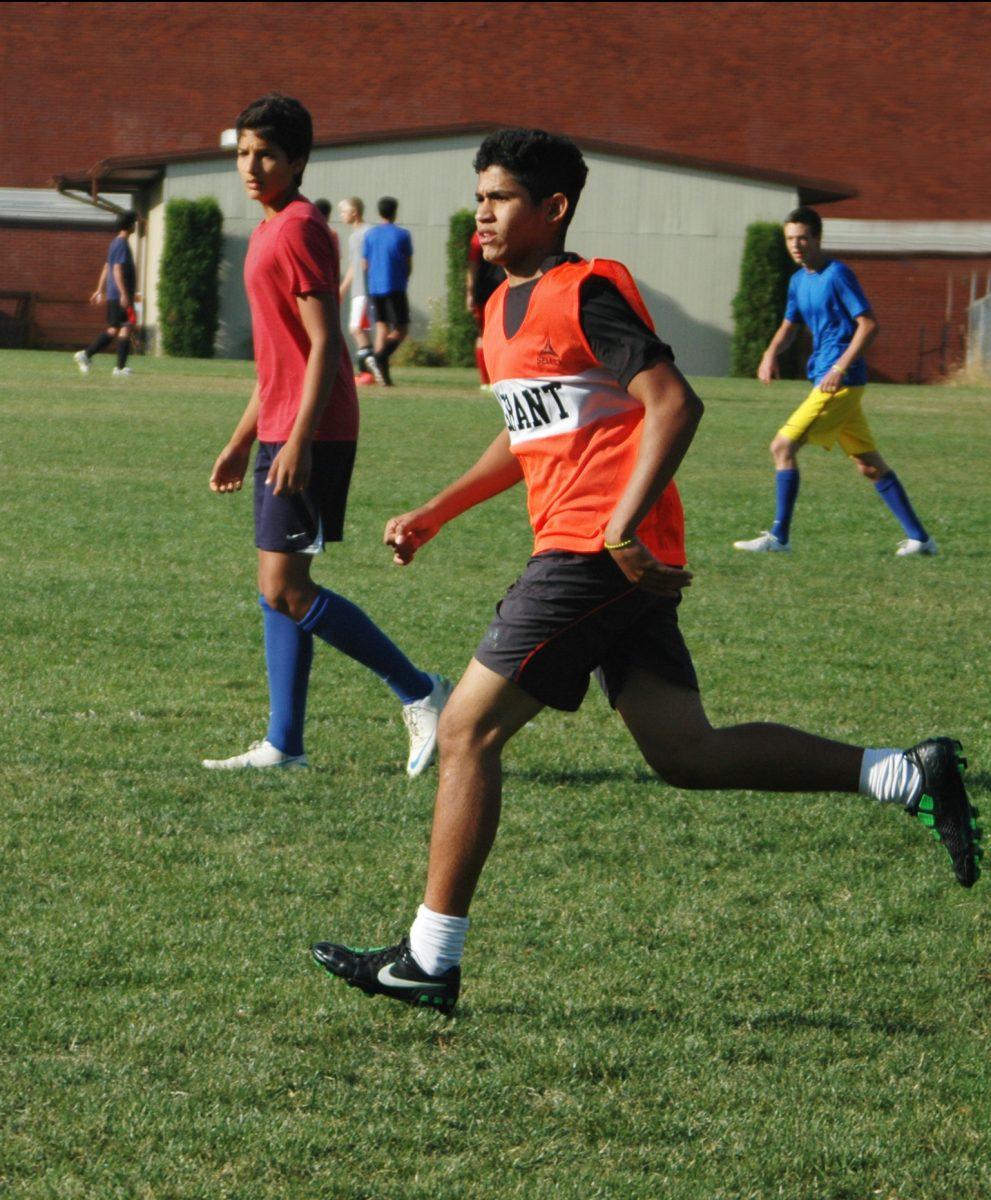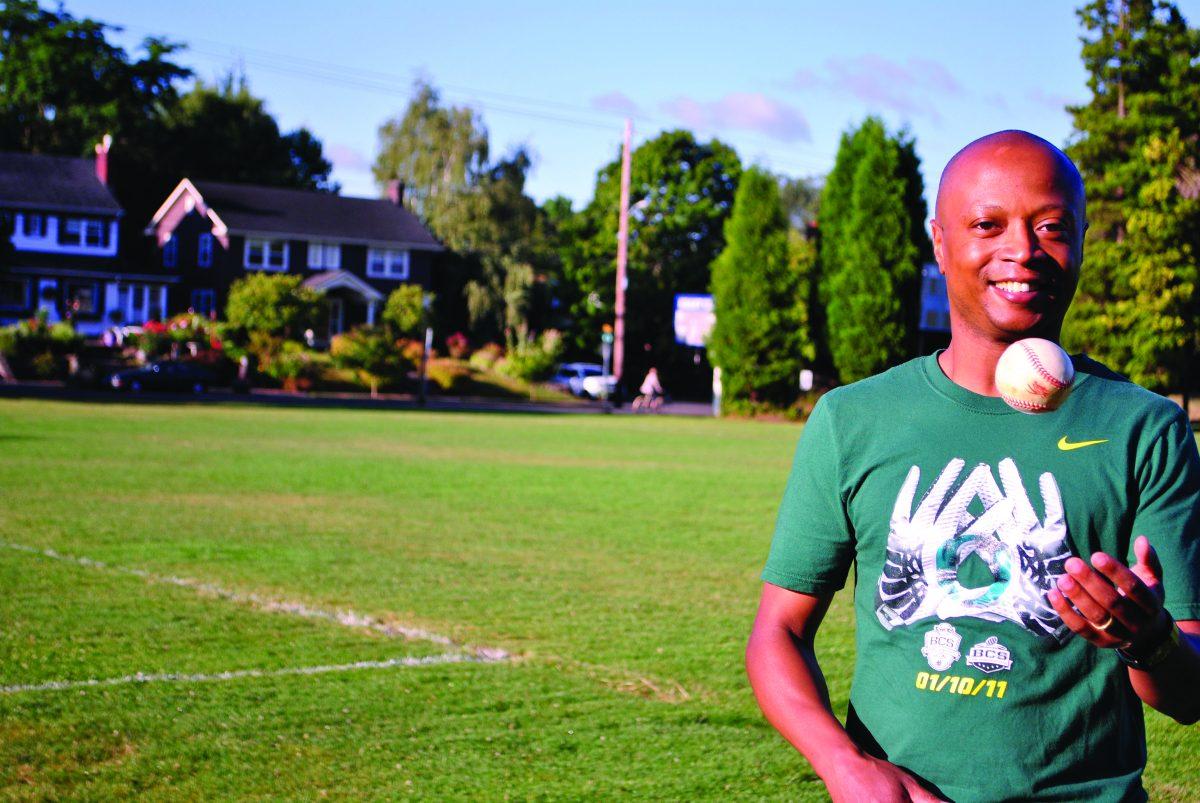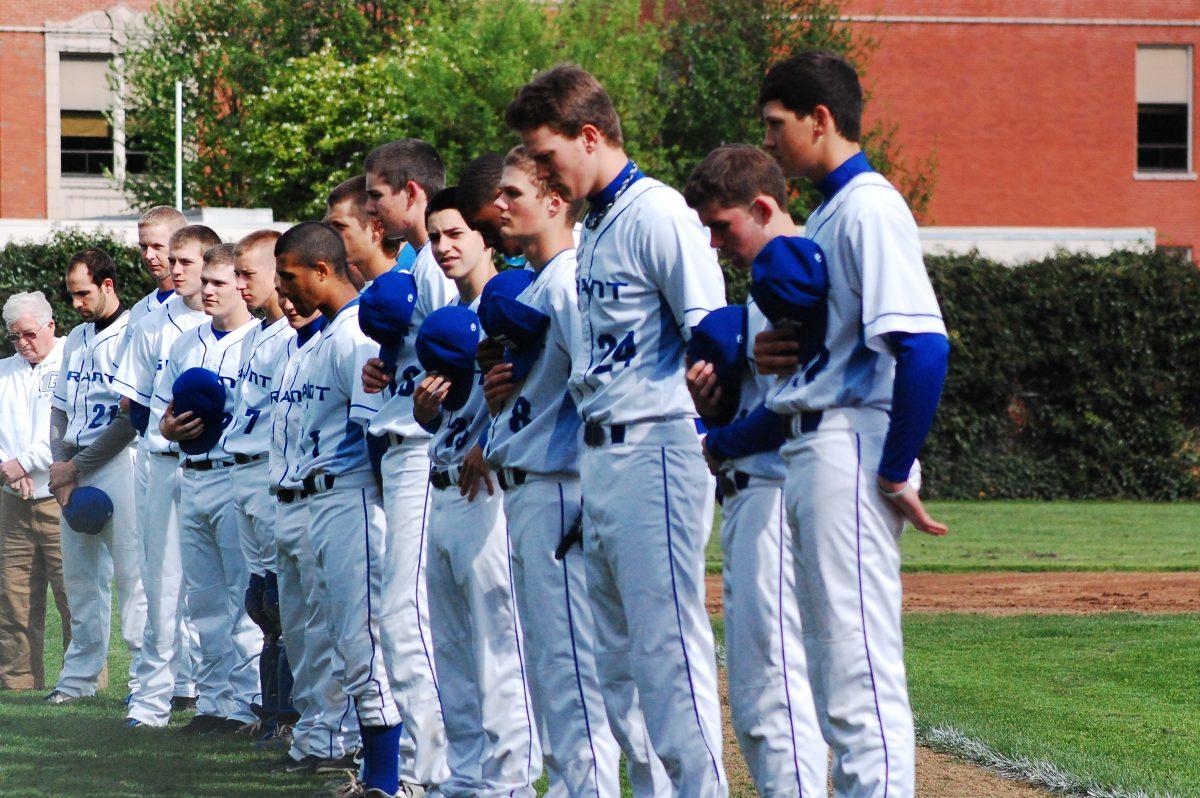Jose Carlos Luengo moves swiftly through the center of the soccer field, approaching the goal. Defenders block his path, but after a few moments and many touches on the ball he moves around them. His cleats scrape the grass and strike the ball. The goalie dives but doesn’t make it. GOAL. A teammate pats Jose Carlos Luengo on the back, but strangely no words of congratulation are exchanged.
This isn’t your typical Grant High School student trying out for the soccer team. Luengo has spent the majority of his life hitchhiking to school, playing soccer on a dirt field and surviving on rationed food cards. That is, until last school year when Luengo immigrated to Portland from Cuba. Luengo who isn’t fluent in English will be a sophomore at Grant this year. He takes all the core classes and is working hard to master the English language.
“Yes, English is very hard. It’s…,” he laughs, “very difficult.”
Luengo came to Portland to live with his parents after a connection with another relative currently living here. His uncle, Leisandro Luengo was the first in his extended family to leave Cuba after he met and subsequently married a woman from the United States. Five years later, Leisandro began petitioning to have the rest of his family join him. Luengo was 15 when his parents and brother moved to Portland. Unfortunately due to problems outside of his control, Luengo had to wait a few months to move here.
It wasn’t easy. A strict policy in Cuba forces young males at age 15 to ensure they are officially enrolled in the mandatory military service by age 17. His age required him to endure a complicated procedure in order to be approved to come to the United States. For Jose Carlos, this process began with an intensive interview at an American Interests Section in Cuba. Since no official contact is allowed with America, they have the special office inside the Swiss embassy. He was given approval and then came to Portland.
Like many other hopeful student athletes, Luengo dreams of having a career in sports. “I want to be a professional soccer player,” he says.
In his small town, which lies in Pinar Del Rio, the westernmost province of Cuba, soccer was a big part of Luengo’s life. He played with his friends on a dusty, hot field with goals marked by two rocks and sticks. If they were lucky, someone would grab wood from the local carpentry shop. Since many of the kids owned only one pair of shoes which were for school, most kids played barefoot.
Even with such modest equipment, soccer was still pivotal. Many locals called it “soccer for money” because of bets on different games. In some instances, the friendly matches would turn into machete fights since large sums of money were riding on the games. Luengo is quick to point out he was never part of that.
An adequate soccer goal was far from the hardest thing to find in Cuba. Transportation was increasingly more difficult to access. Basically, there are very few cars. You’re considered lucky if anyone in your extended family owns an automobile. For the majority of his life, Luengo woke up every weekday at 5:30 a.m. to hitchhike to school.
Later his school was able to afford a rickety school bus – referred to as a ‘camello.’ Everyone lived in small rural towns, so the bus took more than an hour to get to school. At the end of the day, students often stayed late to meet with teachers. If the camello left, students were back to the task of hitchhiking.
“Once,” Luengo explains, “Ten friends and I were coming home late, looking for a ride. We ended up going way out of our way to the main highway. We all waited from around 4:30 to 7:30 for a ride. Then we gave up and started to walk.”
Needless to say, the parents were in deep distress. They eventually arranged a truck to pick the kids up – after they had walked nearly 10 miles.
Challenges for the typical teen in Cuba don’t end with a hitchhike ride home. While Grant kids fret over which adventure camp to attend over the summer – be it rafting, hiking or one involving marshmallow roasting, all Cuban teens are required to attend a mandatory camp for 45 days each year harvesting tobacco. They rise at 5 a.m. and work all day. Although Luengo was a good student in Cuba, failure to attend this program could have changed that. If you don’t participate, the government limits your chances to attend a college or university.
Food rationing was another harsh reality faced by Luengo and his family. Cubans receive rationed food cards. This may include matches, sweet potatoes, rice, beans, bread (which was usually a stale dinner roll) and cigarettes. The food would not last half the month. To receive rations, Luengo’s family had to stand in a long line where people pushed and cut; sometimes the shopkeeper even took food from the rations for himself.
All of these rules and regulations are part of the overall Castro regime which has imposed an intricate set of rules that make the lives of Cubans very difficult and complex. A U.S. embargo only adds to the problems, which include scarce resources. Cuban citizens are required to support the “revolution,” even if they don’t agree with it. As Leisandro Luenga puts it: “You have to lie a lot to survive.”
In Portland, Jose Luengo is having a totally different experience. He’s never lived in a big city before. When asked what his favorite thing about Portland is, he quickly responds “beef.” In Cuba, the acquisition of beef outside of rations is illegal.
“If you kill a government cow in Cuba there is a 20-year sentence,” Luengo jokes. “If you kill a human there is a five-year sentence.”
Although adjusting to Grant can be challenging for any new student, it is particularly difficult for those with language and cultural barriers. Last year, Luengo tried to take it all in stride. His friendly personality, eagerness to learn and experience with overcoming hardships made the transition easier. However, he admits that it was anything but easy. The only help he had besides his friends was one ESL teacher who tried to assist him with all his classes.
He says that any sort of tutor would have been nice. Another option could have been some sort of peer advisor who also spoke Spanish. One of his friends, Orlin Caballero, says he had a similar experience when he arrived at Grant a few years ago. Some non-English speaking students are reluctant to ask questions in class. As Luengo puts it: “You understand nothing and then you have to ask ‘what did he say?’ Most of the time there isn’t an answer.”
This year, Luengo hopes to understand more. A majority of his summer was spent at an ESL class located at Benson High School. He’ll be taking English, math, biology, P.E., history and Spanish. He may also have to take night school since he entered Grant at mid-year last year.
But just like any other high school, student he preferred to speak about his summer. He climbed Mt. Hood.
“He has this urge to get to the top as fast as he can, before everyone else,” said his aunt, Anika Luengo, who climbed with him. “At one point on the hike, he was over 30 minutes ahead of us and then saw snow for the first time.”
The future for Luengo is still “le callo comejen al piano,” which doesn’t actually describe a piano filled with termites. Rather, in Cuban dialect, it translates loosely to “something unexpected or unknown.”
What he does know is that he participated in Grant soccer tryouts after playing for a few months on a local club team. When asked what else he’s looking forward to in the new school year, Luengo confidently responds: “futbol.”

































